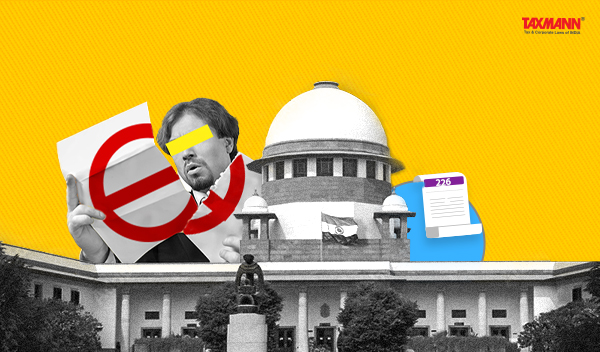HC Mandates Exhaustion of Statutory Remedies Under PMLA Before Invoking Article 226 Relief
- Blog|News|FEMA & Banking|
- 2 Min Read
- By Taxmann
- |
- Last Updated on 17 August, 2024

Case Details: Nium India (P.) Ltd. v. Union of India - [2024] 165 taxmann.com 436 (HC-Delhi)
Judiciary and Counsel Details
- Sanjeev Narula, J.
- Sidharth Luthra, Siddharth Aggarwal, Sr. Adv. Ankoosh K. Mehta, Nikhil Varshney, Abirat Sahai, Ms. Pragya C., Sriharsh Raj, Alok Agrawal, Karan Dhalla, S. Shankaran, Sougat P., Kaustubh Chouhan & Ms Tanishka Khatana, Advs. for the Petitioner.
- Anurag Ahluwalia, Shivam Sachdeva, Anurag Jain, Vivek Gurnani & Kanishk Maurya, Advs. for the Respondent.
Facts of the Case
In the instant case, the petitioner, a company specializing in financial services, primarily facilitated payment collection for digital goods and services within India through its platform, Instarem Masspay.
During an investigation under PMLA, the Directorate of Enforcement conducted a search at the petitioner’s office, which resulted in the freezing of nine bank accounts. Thereafter, the petitioner was issued a Show Cause Notice but argued that essential documents and the reasons for the search were not fully disclosed.
Despite repeated requests, the petitioner was denied access to these documents, including those kept in a sealed envelope. Later, the petitioner filed an appeal against the denial of access, seeking a stay of proceedings, but the Appellate Tribunal refused to grant a stay.
Consequently, the petitioner approached the High Court under Article 226, challenging the denial of access to critical documents and order rejecting their requests.
It was noted that the existence of an alternative remedy did not categorically preclude the High Court from exercising its writ jurisdiction. However, this intervention was ordinarily reserved for cases where there was a clear absence of any other adequate, efficacious remedy, or where adherence to alternative remedies would have resulted in manifest injustice or undue delay that could cause irreparable harm.
High Court Held
The High Court observed that the mere location of the Appellate Authority within its territorial bounds did not provide sufficient ground to deviate from the prescribed statutory appellate route. Further, the petitioner could have easily pursued their grievances through the statutory appellate process as stipulated in section 42 by following the hierarchal judicial process intended by law.
The High Court held that, in cases where statutory remedies were considered adequate and capable of providing necessary relief, the Courts usually required that these remedies be exhausted before seeking relief under Article 226 of the Constitution.
Further, the High Court held that statutory remedies provided under PMLA, particularly the appeal mechanism in section 42, were appropriate and sufficient for addressing the petitioner’s grievances and, thus, the instant Court declined to exercise its discretionary powers under Article 226 of the Constitution and the petitioner was advised to pursue available statutory remedies.
Disclaimer: The content/information published on the website is only for general information of the user and shall not be construed as legal advice. While the Taxmann has exercised reasonable efforts to ensure the veracity of information/content published, Taxmann shall be under no liability in any manner whatsoever for incorrect information, if any.

Taxmann Publications has a dedicated in-house Research & Editorial Team. This team consists of a team of Chartered Accountants, Company Secretaries, and Lawyers. This team works under the guidance and supervision of editor-in-chief Mr Rakesh Bhargava.
The Research and Editorial Team is responsible for developing reliable and accurate content for the readers. The team follows the six-sigma approach to achieve the benchmark of zero error in its publications and research platforms. The team ensures that the following publication guidelines are thoroughly followed while developing the content:
- The statutory material is obtained only from the authorized and reliable sources
- All the latest developments in the judicial and legislative fields are covered
- Prepare the analytical write-ups on current, controversial, and important issues to help the readers to understand the concept and its implications
- Every content published by Taxmann is complete, accurate and lucid
- All evidence-based statements are supported with proper reference to Section, Circular No., Notification No. or citations
- The golden rules of grammar, style and consistency are thoroughly followed
- Font and size that’s easy to read and remain consistent across all imprint and digital publications are applied



 CA | CS | CMA
CA | CS | CMA
